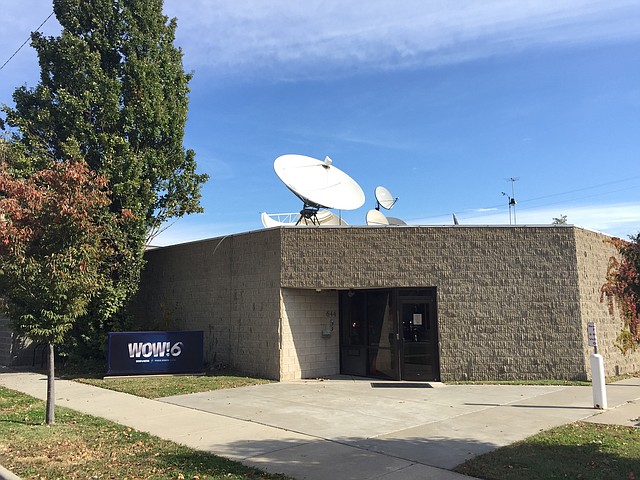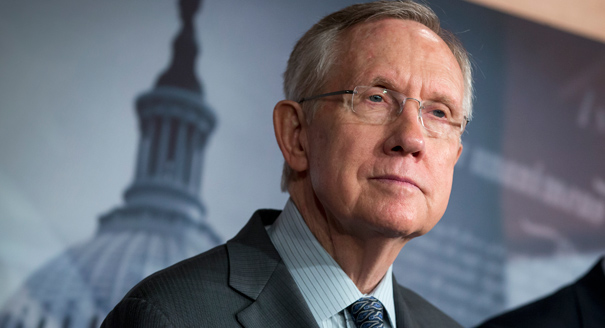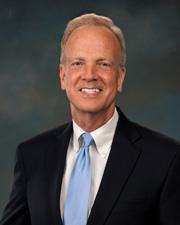I'm off Twitter, but President Trump's tweets remain ubiquitous.
Doesn't that mean Trump willingly had, as an advisor, a man he considers a ripoff artist?
Monday, August 14, 2017
Friday, August 4, 2017
Goodbye, Channel 6: (Journalism will never love you back)

Channel 6 in Lawrence, Kansas airs its last newscast tonight. Once upon a time, I had the privilege of trying to become a TV reporter while still writing for print; I spent my 30th birthday ad-libbing crazy stuff on live TV because the city commission election results were very, very, very late coming in. And some of you may remember the time I went to Columbia MO dressed in KU gear to get on-camera reaction in advance of a "Border War" basketball game.
You hear me say journalism will never love you. It won't. I thought at the time we were building something new, something that might survive the then-nascent turmoil of the business. Wrong. So many things I've tried to build during my career have disappeared. Poof. And I cannot lie: That hurts. A lot. My ego wants a legacy, and it's hard to leave a legacy in institutions that no longer exist.
But what would I have done differently?
Truth is, I enjoyed the hell out of being a jackass on Channel 6. I loved being a blogger at Lawrence.com. I am grateful for the stories that I've done and things I've seen that helped make somebody's life a little safer, or helped misunderstood people tell their story. I've loved the simple act of telling a community about itself.
So. I'm grieving a bit the loss of Channel 6. There will be fresh losses to grieve, no doubt, in the not-too-distant future. This is what love is, I guess: Opening yourself up to the possibility that it won't end well, all for the sake of how good it feels when it's good.
Thursday, July 27, 2017
Me @TheWeek: The culture wars are all Trump has left
The culture wars are all Trump has left:
Trump can't pass a health-care bill (at least so far). Getting a tax cut looks like it might be tricky. The wall he promised looks no closer to reality than it did six months ago. There are real questions these days about whether Republicans are capable of governance.
In that climate, all Trump and the Republicans will have left are identity politics and the culture wars. It's why Trump — after promising to be a president who would protect LGBTQ rights — came out against them. It's why he spent a Tuesday night speech describing the crimes of illegal immigrants in torture-porn detail.
And it's the reason conservatives are cheering the prospect of Kid Rock making a Senate run against Stabenow; policy, these days, matters to them much less than all the "real America" virtue signalling that the entertainer provides. For Trump Republicans, that posturing is all that seems to really matter.
Tuesday, July 25, 2017
Jerry Moran: Bad cop
For 20 years or more, I've been used to thinking of Jerry Moran as the "good cop" in a state full of bad cops. Some of that's personal: He's got a background among Kansas Mennonites, like I do, and I was predisposed to the tribe, I guess. When I'd encountered him in a professional setting, he was far more congenial than, say, Pat Roberts, whose good humor leaves a sour aftertaste.
But after his vote today to proceed on a Senate healthcare bill that doesn't exist, I must finally concede: He is a congenial coward. The Hamlet act he pulls is a way of luring moderates and the occasional liberal (guilty!) to his side even as he votes conservative when push comes to shove.
This is possibly purely a fault of my own interpretation: Moran has never claimed to be anything but conservative. But his unwillingness to commit until very late on controversial issues — the characteristic that defines his political career — fooled me into thinking maybe it was possible to peel him away on the occasional issue of importance. The "good cop" is only the good cop until the interrogation is over and the episode is concluding ... and, suddenly, you realize he was on the bad cop's side all along.
Whatever. It's late now. But he doesn't get the benefit of the doubt from this constituent ever again.
But after his vote today to proceed on a Senate healthcare bill that doesn't exist, I must finally concede: He is a congenial coward. The Hamlet act he pulls is a way of luring moderates and the occasional liberal (guilty!) to his side even as he votes conservative when push comes to shove.
This is possibly purely a fault of my own interpretation: Moran has never claimed to be anything but conservative. But his unwillingness to commit until very late on controversial issues — the characteristic that defines his political career — fooled me into thinking maybe it was possible to peel him away on the occasional issue of importance. The "good cop" is only the good cop until the interrogation is over and the episode is concluding ... and, suddenly, you realize he was on the bad cop's side all along.
Whatever. It's late now. But he doesn't get the benefit of the doubt from this constituent ever again.
Thursday, July 20, 2017
The untold story of how Harry Reid helped give us Donald Trump
I've got a story to tell, one that's out there on the public record, but one that hasn't been much remarked upon.
It takes place during the Obama-Romney campaign of 2012. During the campaign, Mitt Romney was proving reluctant — as Donald Trump was, after him — to release some pertinent personal financial information. So Sen. Harry Reid, then the leader of Democrats in the Senate, decided to make a big deal about it.
Fast forward to the fall of 2016. Trump versus Clinton. Her emails have been hacked; Trump has asked the Russians to release them to the media. It's all very suspicious. And Harry Reid, serving out his final days in the Senate, makes his move. He writes an angry letter to James Comey.
The problem being: When Reid's credibility mattered most, when he could've used some "trust me" to help steer the nation on a different course, he'd spent it all on a crappy lie he probably didn't even need to make in order for Obama to win. Going low, politically, has its short-term rewards. It can be justified on that basis. But who wishes Americans had paid more attention to Harry Reid last fall? A lot of the same people who lauded his earlier lie.
Hey: Politics ain't beanbag. It's never going to be as clean as I like it. But there are costs to wallowing in the dirt, and they're not just moral prissyness. They matter. We're all living with how they matter now.
 |
| He lied. Did American democracy die? |
Saying he had “no problem with somebody being really, really wealthy,” Reid sat up in his chair a bit before stirring the pot further. A month or so ago, he said, a person who had invested with Bain Capital called his office. “Harry, he didn’t pay any taxes for 10 years,” Reid recounted the person as saying. “He didn’t pay taxes for 10 years! Now, do I know that that’s true? Well, I’m not certain,” said Reid. “But obviously he can’t release those tax returns. How would it look?I wrote at the time that "Reid’s allegations look and smell a lot like bullcrap."
Why? Because there’s absolutely no reason to believe that Reid is telling the truth. He’s offered no witnesses and no proof of his claims, only a “somebody told me” statement that wouldn’t get within a million miles of passing muster in a court of law. And when challenged to present his evidence, his response is that Romney can prove Reid’s allegations wrong—by releasing his tax forms. Politically clever? Yes. Distasteful? It absolutely should be.It turned out I was right. Reid later admitted lying, but said he had no regrets: "Romney didn't win, did he?"
Fast forward to the fall of 2016. Trump versus Clinton. Her emails have been hacked; Trump has asked the Russians to release them to the media. It's all very suspicious. And Harry Reid, serving out his final days in the Senate, makes his move. He writes an angry letter to James Comey.
In my communications with you and other top officials in the national security community, it has become clear that you possess explosive information about close ties and coordination between Donald Trump, his top advisors, and the Russian government — a foreign interest openly hostile to the United States, which Trump praises at every opportunity. The public has a right to know this information. I wrote to you months ago calling for this information to be released to the public. There is no danger to American interests from releasing it. And yet, you continue to resist calls to inform the public of this critical information.Here's the thing: Reid was right! He was telling the truth! We found out later that Republicans had warned President Obama they'd accuse him of politicizing intelligence if he went public with this — and Obama, probably figuring Clinton would win anyway, decided to keep his mouth shut. Reid's letter to Comey, when made public, represented one of the best possible chances to get this issue fixed firmly in the minds of the American voters. Only ... Reid's accusation was treated like so much bullshit. Here's the Washington Post:
Reid is saying that he has been told the FBI has evidence of possible collusion between the Trump campaign and the Russian government. And he's not just saying this information came from mysterious and unnamed national security officials; he's saying Comey himself has left him with this impression. But there is no public evidence to support Reid's claim of actual "coordination" between the Trump campaign and the Russian government. And were that to be the case, it would be a scandal of epic proportions. Asked what evidence exists of such a connection, Reid spokesman Adam Jentleson cited classified briefings. "There have been classified briefings on this topic," Jentleson said. "That is all I can say." Asked whether the letter means Comey has shared such information directly with Reid, Jentleson said, "Refer you to the language in the letter." This is the political equivalent of Reid lighting a match, dropping it on a dry ground and walking away.The Post then mentioned Reid's false allegation against Romney. And it included this old quote from Reid:
Is there a line he wouldn’t cross when it comes to political warfare? “I don’t know what that line would be,” [Reid] said.It was, in retrospect, a missed opportunity. In 2012, when Reid made his first, pretty clearly bogus charges, there were no end of defenders. Why? Because, I was told, Romney hadn't released his tax returns so who was to say Reid was wrong? And in any case, the other guys fight dirty so why shouldn't we? We're tired of always being the weak ones, right?
The problem being: When Reid's credibility mattered most, when he could've used some "trust me" to help steer the nation on a different course, he'd spent it all on a crappy lie he probably didn't even need to make in order for Obama to win. Going low, politically, has its short-term rewards. It can be justified on that basis. But who wishes Americans had paid more attention to Harry Reid last fall? A lot of the same people who lauded his earlier lie.
Hey: Politics ain't beanbag. It's never going to be as clean as I like it. But there are costs to wallowing in the dirt, and they're not just moral prissyness. They matter. We're all living with how they matter now.
Tuesday, July 18, 2017
The unexpected, lovely humanity of "Spider-Man: Homecoming"
Three thoughts about “Spider-Man: Homecoming” just as soon as I learn that with great power comes great blah-blah. (Also: Spoilers.)
• There’s really not much interesting to say about most Marvel movies anymore. They’re big, they’re expensive, they’re usually reasonably entertaining for a couple of hours and that’s it. I’ve been partial to the “Captain America” movies — the first because it took place in a different era and thus felt substantially different from the rest of the MCU — and the second because it so effectively echoed 1970s paranoid thrillers, right down to the Robert Redford.
I’m not sure that the new “Spider-Man” movie is all that different, but it has two scenes going for it that I want to linger on. Again: Spoilers!
• The first scene: When Peter Parker shows up at his date’s house to take her to homecoming. The door opens and what do we realize: The dad of Peter’s crush is also the movie’s villain — Michael Keaton, playing the Vulture. The next few minutes are both some of the quietest in the MCU and the most taut: As Peter wordlessly absorbs the shock that his nemesis is also the loved one of someone close to him. And as Keaton slowly realizes that Peter is Spider-Man, the tension builds to the scene’s climax: A threat by Keaton to kill everybody Peter loves. It’s the closest the MCU has ever come to Pure Hitchcock.
What’s remarkable about the scene is it’s pure domesticity. We see our villain as a dad -- realize, in fact, that he’s a normal dad, and that the villainous things he’s done aren’t just a rationalized in the story by being a dad -- they are, in fact, seemingly absolutely the things a normal dad would do to ensure that he could keep feeding his family in the face of economic pressures. Michael Keaton sells the heck out of this, and in that moment he becomes a sort of Jean Valjean -- if we were witnessing his story through the eyes of plucky teen detective Javert.
The other scene: Peter is trapped under rubble — can barely move. He starts screaming for help. Screaming and crying, in fact. He sounds not like a superhero, but like a little boy, like somebody’s child. And of course, that’s what he is.
• Which brings us back to the MCU and today’s blockbuster movie economy. A few weeks ago, I saw Terrence Malick’s “Badlands” for the first time. What struck me, as much as anything, were the movie’s simple opening scenes — Martin Sheen working on a garbage truck, Sissy Spacek twirling a baton on the empty neighborhood streets of her small town. We don’t see many of these real-life moments anymore in the movies. There are too many explosions to set off, too many CGI effects to paint into the scene. I miss the old reality.
Marvel movies, as I’ve noted, are as guilty of the loud-louder-loudest blockbuster trend as much as anything. So it’s notable that the most memorable moments in “Spider-Man” are its quietest and most human. They’re what I remember, more than any spectacle, after leaving the theater.
Marvel movies, as I’ve noted, are as guilty of the loud-louder-loudest blockbuster trend as much as anything. So it’s notable that the most memorable moments in “Spider-Man” are its quietest and most human. They’re what I remember, more than any spectacle, after leaving the theater.
Monday, July 17, 2017
Me @TheWeek: Block Christopher Wray's nomination to the FBI
In a stunning failure of self-promotion, I neglected to mention here my debut at TheWeek.com. I'm really thrilled to have been published there — the ranks of commentary writers are about as good as any publication in the country, so I feel lucky.
The subject of my debut? Christopher Wray, Donald Trump's nominee to lead the FBI. My take? Don't confirm him:
The subject of my debut? Christopher Wray, Donald Trump's nominee to lead the FBI. My take? Don't confirm him:
There's an old legal concept known as "the fruit of a poisonous tree." The idea is that if evidence is tainted — say, if police got a confession without reading a suspect his rights — then all information learned as a result of that evidence is inadmissible in court. The message to lawyers is clear: You don't get to take advantage of doing things the wrong way.
American government is not a court of law. But with President Trump, there's plenty of reason to think that the tree — the whole damned orchard, in fact— is filled with toxins.It's obviously not a good idea to halt all governance while Donald Trump is under investigation. But the FBI position is different, for reasons I explain in the piece. Please! Read the whole thing!
Subscribe to:
Posts (Atom)
Stubborn desperation
Oh man, this describes my post-2008 journalism career: If I have stubbornly proceeded in the face of discouragement, that is not from confid...
-
Just finished the annual family viewing of "White Christmas." So good. And the movie's secret weapon? John Brascia. Who'...
-
Warning: This is really gross. When the doctors came to me that Saturday afternoon and told me I was probably going to need surgery, I got...
-
A funny thing happened while reading Tim Alberta's new book. I thought about becoming a Christian again. That's maybe not the reacti...

